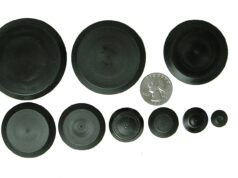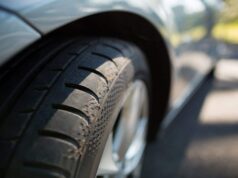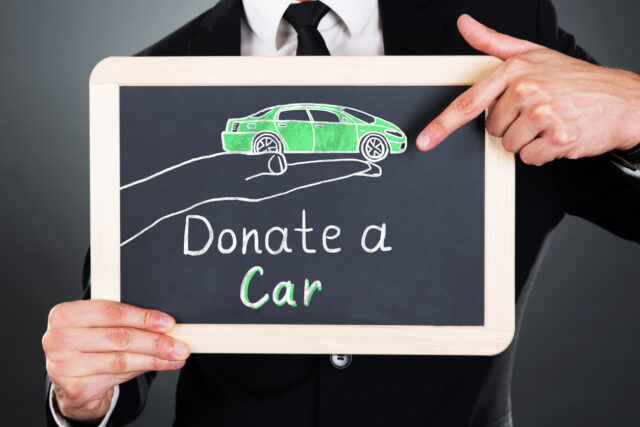
An auto donation to Goodwill can be a great way to give back to your community while getting rid of an old or unwanted vehicle. By donating your car to Goodwill, you can not only help fund their programs but also get a tax deduction. Plus, you get extra space in your garage or driveway to store the things you really want.
Here are the steps you need to know to donate your car to Goodwill and the benefits you can get:
Six Steps for Donating Your Car
1. Determine Eligibility
Goodwill accepts most vehicles, including cars, trucks, vans, and SUVs, as long as they are in working condition. If your vehicle is not in working condition, it may still be accepted as a donation, but it may likely be sold for scrap metal. If your automobile has any outstanding liens or loans, you should pay them off before donating it. Contact your local Goodwill to determine if your vehicle is eligible for donation.
2. Gather Documents

Before auto donation to Goodwill, you should gather documents related to the vehicle. These papers help prove that you are the owner of the car and have permission to give the car away. Some of the papers and documents that you should bring with you include:
Title and Registration
The documents of the title and registration of your car can prove that you are the legal owner of the car. They can also prove that you have the authority to donate it. If you have lost your title, you can get a duplicate copy from your local DMV. It is an easy process to request one and usually does not take more than one to two weeks to get in the mail.
Release of Liability
This document can release you from any responsibility for the car once it is handed over to Goodwill. This form can protect you from any future legal or financial issues arising from vehicle ownership. It also helps Goodwill to prove that they have your car legally. This way, if anyone comes back and says that someone else donated their car, all the legal papers are in order to show no wrongdoing.
Proof of Insurance
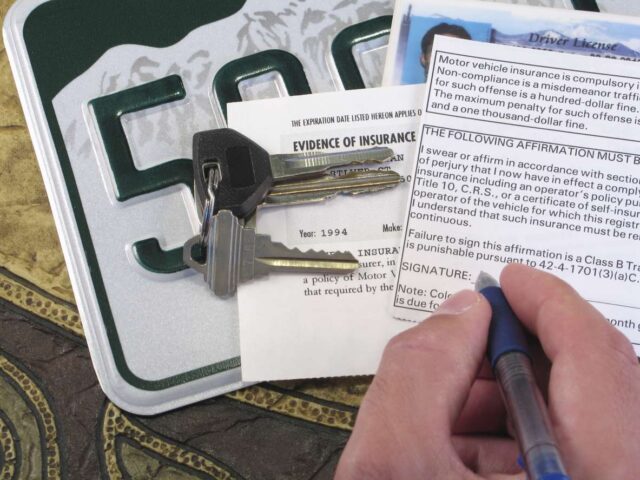
Before donating your automobile, you need to cancel your insurance policy. You may need to provide proof of insurance to Goodwill. This can help to show that your car was covered until the time of the donation. The proof could be in the form of an insurance card or a letter from your insurance company. It helps protect both parties from any trouble in the future.
Odometer Reading
You need to provide your car’s odometer reading at the time of donation. This information can be used to determine the value of your car.
3. Schedule a Pick-up
Goodwill can arrange for the pick-up, so you don’t have to worry about dropping off the car at their location. You can schedule a pick-up online or through a phone call. Provide all information such as the year, make, model, and condition of the vehicle. Goodwill will provide you with a specific date and time for the pick-up.
Once confirmed, you can wait for the tow truck to arrive. Make sure that you are there at the time of pickup. Even if you have given the required documentation to Goodwill beforehand, it is better that you are there when the tow truck comes to confirm the correct vehicle and assist in any directions needed.
4. Complete the Auto Donation Form
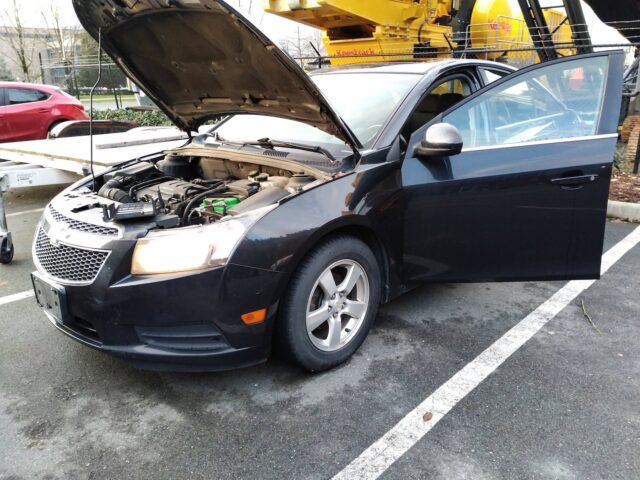
This can be done online or through the mail. The form requires basic information about the donor, the vehicle, and the condition of the automobile. You may also need to provide the vehicle identification number (VIN) on the form. The donation form serves as a legal document, so be sure to provide the correct information.
5. Await the Tax Receipt
Goodwill will send you a tax receipt after the vehicle has been sold, typically within a month of the sale of the car. This tax receipt can be included in your yearly tax deductions. Hold onto the receipt for future reference.
6. Follow-up
Following up with Goodwill can be a good idea to confirm that everything went smoothly. You can contact Goodwill to check your donation status, ask any questions, or provide feedback about the process. You can also follow their social media pages to stay updated on their activities and their impact on the community.
Benefits of Donating Your Car to Goodwill

Tax Deduction
When you file your taxes, you can claim the fair market value of the car or the amount that Goodwill receives from selling the vehicle, whichever is lower. This can help you save money on your taxes while supporting a local charity organization such as We Charity. Keep your receipt and documentation of the donation to claim your deduction.
Free Towing Service
If your car does not drive well or you cannot get your vehicle to a Goodwill alone, you can still donate. Many Goodwill locations can assist with the cost of towing your vehicle or finding a towing company. Goodwill may handle all the logistics of picking up your vehicle and delivering it to their facility, saving you time and money.
Environmentally Friendly
Recycling a car can reduce the environmental impact of producing new vehicles and reduce the amount of waste that goes into landfills. Newer cars are more environmentally friendly with the number of miles they get per tank of gas. They also have less emissions than older cars. Goodwill may work with eco-friendly auto recyclers to dispose of donated vehicles in an environmentally responsible manner.
Donate Your Car to Goodwill Today
Auto donation to Goodwill can be a great way to make a difference in your community while also receiving tax benefits. By following these steps, you can easily donate your car to Goodwill and make a positive impact. Contact your local Goodwill for more information if you have a car that you would be willing to donate.

